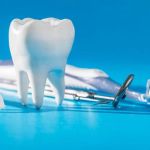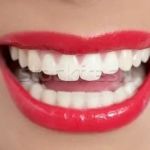Managing Gum Disease in Elderly Patients: A Comprehensive Guide
As we age, taking care of our teeth and gums becomes even more important. Gum disease, or periodontal disease, is a common issue faced by elderly patients. In fact, studies show that over 70% of people over the age of 65 suffer from some form of gum disease. As a dental care provider, I have witnessed firsthand the challenges elderly patients face in maintaining good oral health, but with the right approach, it is entirely possible to manage gum disease and even reverse early stages of it.
Understanding Gum Disease in the Elderly
Gum disease typically develops when bacteria in the mouth form plaque on the teeth. If plaque isn't removed by brushing and flossing, it can harden into tartar, which can only be removed by a dentist. This can lead to gingivitis, the earliest stage of gum disease, which causes red, swollen, and bleeding gums. If left untreated, gingivitis can progress to periodontitis, a more serious form of gum disease that can damage the bones that support your teeth.
For elderly patients, the risk factors for gum disease increase. Some of these include:
- Reduced saliva production: As we age, the salivary glands produce less saliva, leading to dry mouth, which increases the risk of gum disease.
- Medication side effects: Many medications commonly prescribed to elderly patients, like antihistamines, blood pressure medications, and antidepressants, can contribute to dry mouth, further complicating gum health.
- Chronic health conditions: Diseases such as diabetes, heart disease, and rheumatoid arthritis can affect the immune system and increase the risk of gum infection.
- Weakened immune system: Aging naturally weakens the immune system, making it harder for the body to fight off infections, including those that affect the gums.
The Impact of Gum Disease on Overall Health
Many people are unaware that gum disease can affect more than just their oral health. In fact, research has shown that gum disease is linked to a variety of other health conditions, especially in older adults. For instance, there is a strong connection between gum disease and heart disease. The bacteria that cause gum disease can enter the bloodstream, contributing to inflammation in other parts of the body, including the heart.
Additionally, untreated gum disease in elderly patients has been linked to an increased risk of stroke, diabetes complications, and even dementia. This is why it's essential to treat gum disease promptly and maintain good oral hygiene as part of an overall health strategy.
Effective Treatment for Gum Disease in the Elderly
When it comes to treating gum disease in elderly patients, the approach must be comprehensive, taking into account their specific health needs and challenges. Here’s how to handle gum disease effectively:
1. Regular Dental Check-ups
One of the most important aspects of preventing and managing gum disease is maintaining regular dental check-ups. For elderly patients, this should be done every three to six months, depending on their oral health. During these visits, the dentist will perform a thorough examination, check for signs of gum disease, and remove tartar buildup that cannot be removed by regular brushing.
2. Professional Cleaning
Scaling and root planing are common procedures for treating gum disease. This deep cleaning removes tartar from beneath the gums, helping to reduce inflammation and prevent further progression of the disease. In severe cases, surgical treatments may be needed, but early intervention can often prevent this.
3. Proper Oral Hygiene at Home
For elderly patients, brushing and flossing regularly is key. However, physical limitations like arthritis can make this difficult. In such cases, using an electric toothbrush with a larger handle or employing a caregiver to assist with oral hygiene can be very helpful. It’s also important to floss daily to remove food particles and plaque between the teeth, which a toothbrush can't reach.
4. Treating Dry Mouth
If dry mouth is contributing to gum disease, there are various solutions. Increasing water intake, using saliva substitutes, and avoiding alcohol and tobacco can help. Additionally, dentists may recommend special mouth rinses or gels that can stimulate saliva production and protect the gums.
5. Medication Review
It’s important to review any medications the elderly patient is taking. If the medications are contributing to dry mouth or affecting gum health, the doctor may adjust the dosage or switch to a different medication that doesn’t have these side effects. A collaborative approach between the dentist, doctor, and patient is crucial for effective treatment.
6. Nutrition and Gum Health
Proper nutrition plays a significant role in gum health. Elderly patients should focus on a balanced diet rich in vitamins A and C, as these nutrients help maintain healthy gums. Foods like leafy greens, fruits, and nuts are excellent choices. Avoiding sugary foods is equally important, as sugar can promote the growth of harmful bacteria that cause gum disease.
Dealing with the Emotional Aspect of Gum Disease
Managing gum disease in elderly patients isn't just about the physical treatment; the emotional and psychological aspects also play a significant role. Older adults may feel embarrassed about their oral health or be hesitant to visit the dentist due to fear of pain or discomfort. It’s essential to approach the situation with patience, empathy, and understanding.
One of my most memorable experiences with an elderly patient was Mrs. Thompson, a 78-year-old woman who had neglected her oral health for years. She was ashamed of her gums and was in significant pain, but with consistent treatment and support, she regained her confidence and improved her gum health. We worked together, and she felt empowered by the progress she made. It was a testament to how patience and care can lead to remarkable changes in both health and emotional well-being.
When to Seek Further Care
In some cases, gum disease in elderly patients can be severe enough to require specialized care. If you notice any of the following signs, it's essential to consult a dentist immediately:
- Persistent gum bleeding, especially when brushing or flossing
- Receding gums or teeth that appear longer than usual
- Pain or tenderness in the gums
- Loose teeth or changes in bite
Early intervention is always better than waiting for the disease to progress. As an elderly patient, don’t hesitate to seek help if you’re experiencing any of these symptoms.
Conclusion
Gum disease in elderly patients is a serious concern, but with proper care and treatment, it is entirely manageable. Regular dental check-ups, good oral hygiene practices, professional cleanings, and a holistic approach to health can all contribute to maintaining healthy gums. It’s also crucial to consider the emotional aspect of dealing with gum disease, as the support of family, friends, and caregivers can make a significant difference in the patient’s experience. By taking proactive steps, elderly patients can enjoy better oral health and overall well-being for years to come.







 Encore Dental of Toms River - An Affiliate of The Smilist4.0 (562 review)
Encore Dental of Toms River - An Affiliate of The Smilist4.0 (562 review) Complete Health Dentistry of Woodland Hills4.0 (335 review)
Complete Health Dentistry of Woodland Hills4.0 (335 review) Aspen Dental - Canton, GA4.0 (573 review)
Aspen Dental - Canton, GA4.0 (573 review) Vision Dental Montana4.0 (97 review)
Vision Dental Montana4.0 (97 review) Main Line Dental Aesthetics4.0 (336 review)
Main Line Dental Aesthetics4.0 (336 review) 24 Hour Dentist3.0 (450 review)
24 Hour Dentist3.0 (450 review) The Importance of Oral Health Education During Pregnancy for a Healthy Pregnancy
The Importance of Oral Health Education During Pregnancy for a Healthy Pregnancy Best Tips for Brushing Your Teeth Properly for Healthy Gums: Essential Techniques for Oral Health
Best Tips for Brushing Your Teeth Properly for Healthy Gums: Essential Techniques for Oral Health Why Skipping Dental Checkups Can Lead to Bigger Oral Health Problems
Why Skipping Dental Checkups Can Lead to Bigger Oral Health Problems Advantages of Porcelain Dental Restorations
Advantages of Porcelain Dental Restorations How Can Diabetes Cause Tooth and Gum Problems? Preventing and Managing Oral Health Issues
How Can Diabetes Cause Tooth and Gum Problems? Preventing and Managing Oral Health Issues Healthy Habits for Promoting Good Oral Health and Hygiene: Tips for a Healthy Smile
Healthy Habits for Promoting Good Oral Health and Hygiene: Tips for a Healthy Smile